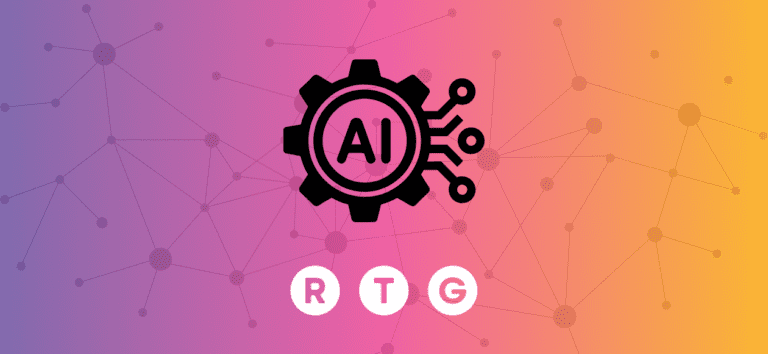This is a technical blog on how LLM’s like ChatGPT will make use of the RunSignup AI upcoming MCP’s capability. Since MCP is a new concept, there is a little explanation of what MCP is, with details on how RunSignup will implement our MCP service and then how LLM’s will use the RunSignup AI MCP service.

What is MCP?
The Model Context Protocol was created by Anthropic, and has been widely adopted since late 2024 (yes, things move fast in AI).
“The Model Context Protocol is an open standard that enables developers to build secure, two-way connections between their data sources and AI-powered tools. The architecture is straightforward: developers can either expose their data through MCP servers or build AI applications (MCP clients) that connect to these servers.” – Anthropic.
This means that both ChatGPT type tools, as well as the coming wave of AI Agents, will be able to make use of the RunSignup Platform with our RunSignup AI MCP.
MCP vs REST API Analogy
MCP (Model Context Protocol) can be thought of as an abstraction layer over traditional REST APIs. Where REST exposes endpoints like /events/{id}/participants, an MCP might expose a market-specific object like “Find Events” that includes the APIs, UI components, and logic patterns bundled together to serve that market’s full lifecycle.
REST = resource-centric access to data. MCP = segment-centric access to outcomes.
In practice, REST is about verbs (GET/POST/etc) on resources. MCP is about business goals and user workflows. MCP could be the structure that organizes and documents how APIs, UI tools, and AI interfaces work together to serve a particular customer type.
🧪 Example Use Case 1: Find Nearby Races (Public API)
Use Case: Show all races within a 25-mile radius of a zip code.
Intent: find_nearby_races
Inputs: zipcode, radius (in miles)
Output: List of race summaries with name, date, location, registration URL
Authentication: None (public API)
Example ChatGPT Conversation:
User: “Find me races near 08057.”
ChatGPT: “Here are upcoming races within 25 miles of Moorestown, NJ:
- June 1 – Run for Fun 5K in Cherry Hill, NJ
- June 7 – Moorestown Rotary 8K
- June 14 – Freedom Dash 10K in Mt. Laurel, NJ”
🧪 Example Use Case 2: Repeat Participants Report (OAuth)
Use Case: Build an AI-powered report that shows how many unique participants have returned to run the Scott Coffee Run over multiple years. For example: how many have run 10+ years, 9 years, etc.
Intent: generate_repeat_participant_report
Inputs: event_series_id (or list of event_ids), optional filter for min_years
Output: Aggregated list showing participant counts by number of years attended
Authentication: OAuth 2 required with event_management scope
Example ChatGPT Conversation:
User: “How many people have run the Scott Coffee Run for 10 or more years?”
ChatGPT: “Here’s the loyalty breakdown:
- 12 runners have participated for 10+ years
- 18 have run 9 times
- 24 have run 8 times
- 973 have run only once”
🏗 Implementation Concepts for RunSignup
To expose and support MCP-powered AI and developer applications, RunSignup AI will include:
- A central MCP registry: a hosted service that defines available intents, with metadata for each use case
- Public and OAuth-protected endpoint wrappers: user-friendly API endpoints tied to real-world workflows (like making a request from a custom GPT, not just REST resources
- OpenAPI + JSON Schema definitions: for every exposed intent, making them easily consumable by AI agents and developers
- Plugin manifests and
.well-knownhosting: to support ChatGPT plugin registration and schema discovery - A developer portal or console: with documentation, examples, test tools, and API key/OAuth configuration interfaces
- Optional semantic metadata layers: e.g., JSON-LD, intent discovery via LLM-compatible descriptions
- Rate limiting, caching, and performance monitoring tools for MCP endpoints
Over time, this architecture would allow RunSignup AI to scale support for AI-based applications while maintaining control, compliance, and performance.
🔍 What ChatGPT Can See by Default
ChatGPT (the general model) doesn’t “crawl” the internet for APIs.
- RunSignup AI will explicitly register a plugins (and likely AI Agents over time) and publish them
- RunSignup AI will provide data through sources like browsing, a connected tool, and web-accessible structured metadata
🧠 How MCP Improves Discoverability (When Integrated)
RunSignup AI’s MCP will be exposed via:
- A
.well-known/ai-plugin.jsonmanifest - An OpenAPI schema linked in that manifest
- Public endpoints (like
find_nearby_races) - Register the plugin with OpenAI (or enable it in GPTs)
Then ChatGPT can use RunSignup as a live data source.
For example:
- A user says: “What races are happening near Moorestown next weekend?”
- If the plugin is available and enabled, ChatGPT can call your endpoint in real time
- It will interpret the user’s intent and pull the data from RunSignup’s MCP-exposed API
Summary
RunSignup AI will open up the RunSignup platform so that customers can leverage AI in the future.
Here is a video with Jon Maron explaining MCP in more detail.
